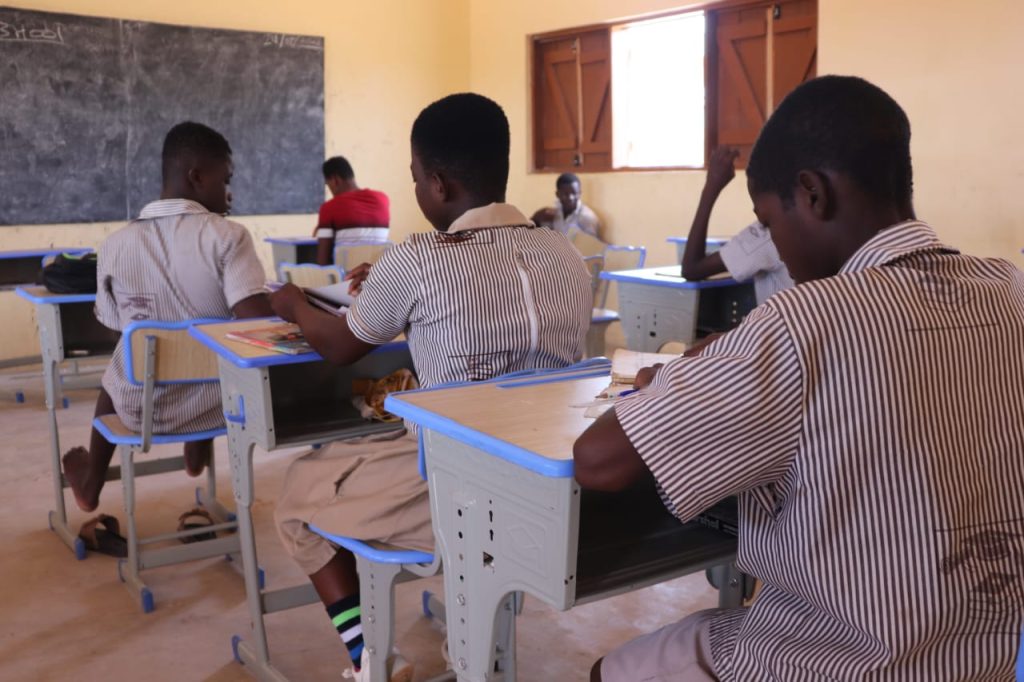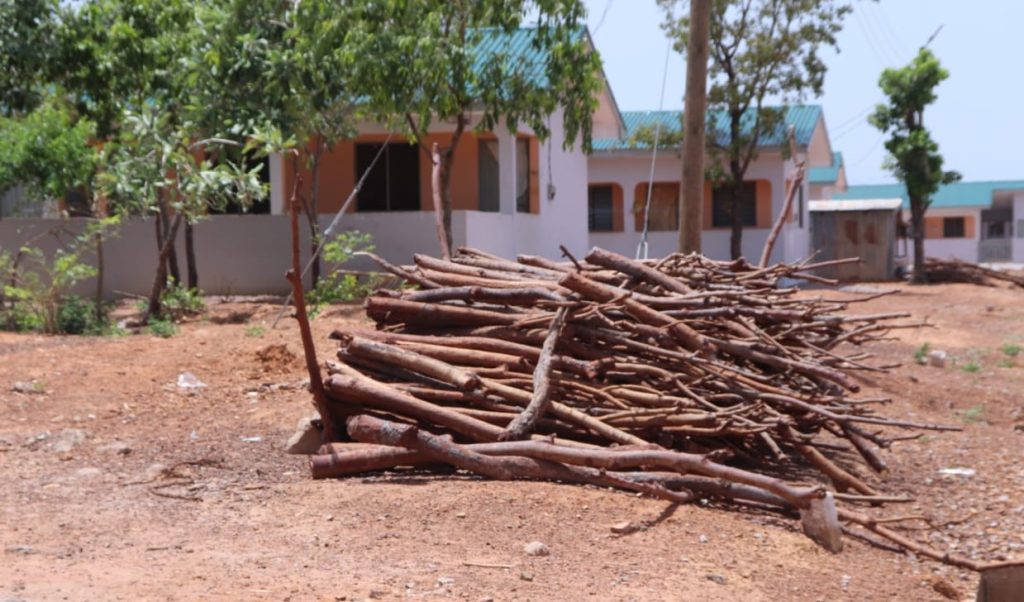By Anthony Adongo Apubeo
Digaare (U/E), May 26, GNA – The Cardinal Namdini Mining Limited, a subsidiary of Shandong Gold, a Chinese mining firm, has resettled two communities in the Talensi District of the Upper East Region to pave the way for large scale surface mining in the area.
The two communities; Digaare (Accra site) and Biung, were originally occupying the lands leased by the Government to the Chinese company to engage in large scale mining for 15 years.
The mining company built 121 urban type services fitted and well laid concrete residential buildings for the two communities, reticulated electric power, improved water supply and sanitation and improved community roads access.

Social amenities such as well-equipped school infrastructure with disability friendly Water, Sanitation and Hygiene (WASH) services, recreational and healthcare facilities, teachers and nurses’ accommodation, mosques and churches, graveled roads connecting houses among others have also been provided.
Provisions have also been made for future development around each household while lands have been secured for the residents to engage in agricultural activities.
These were revealed when a delegation from the Ghana News Agency (GNA) visited the company and its operational areas as part of an agreement between the mining company and the national news wire.
The visit, led by Mrs Beatrice Asamani Savage, the Director of Editorial, GNA, was to get first-hand information about the company’s operations and the impact of the activities on the communities to ensure accurate reportage.
Mr Kofi Adusei, the Community and Social Responsibility Manager, Cardinal Namdini Mining Limited, said the resettlement was done in accordance with the Minerals and Mining Act of 2006, Act 703, and Minerals and Mining Compensation and Resettlement Regulations of 2012, L.I. 2175.
These enjoin mining companies to resettle all persons who would be affected by their operations.
He said although most of the facilities provided were not in the old settlements, it was the policy of the company to contribute to the improvement of its operational communities.

As part of the resettlement plan, a livelihood restoration programme was introduced where farmers were provided with agriculture extension services, Mr Adusei said.
He said farm inputs and implements, and tractor services were also provided to improve their agriculture productivity, to reduce the vulnerability the resettlement had exposed them to.
“With the help of a local NGO, called the Widows and Orphans Movement, we identified some vulnerable people within the affected area, and we provided vulnerable assistance interventions,” he said.
“These include enrolling them onto the National Health Insurance Scheme, providing them with monthly food ration and cash, and medical services through counseling to help them to settle well in their new environment.”
“We also trained some in livelihood restoration and we gave the families animals such as goats and chicken to rear. So, in all, we supported about 200 farmers with regard to the livelihood restoration programme and 12 vulnerable households.”
The mining company would continue to support the communities through interventions when it officially began operations in 2024, Mr Adusei said.
The area is a green field and is expected to generate 150 million tonnes of ore to give five million ounces of gold within the 15 years.
Currently, the company is investing about US$520 million to construct its infrastructure base including the operational offices and staff accommodation, processing plants, tailings storage facilities among other things to allow for full mining operations to begin 2024.
Apart from engaging more than 800 Ghanaians in the construction phase, the company had also invested US$6 million to construct 25.3 kilometers of roads connecting Bolgatanga to the mining site.
GNA